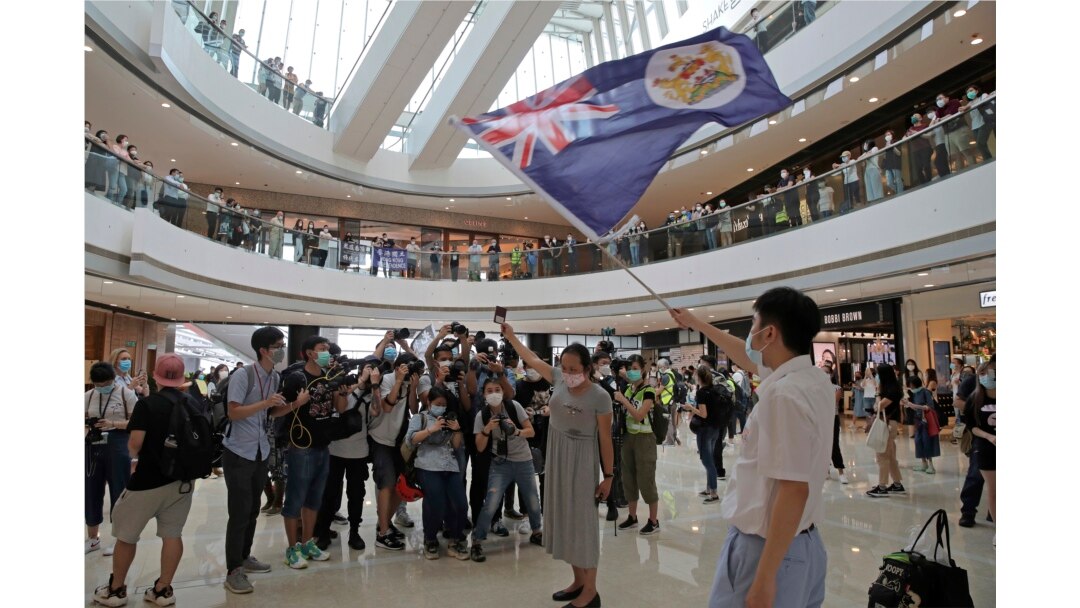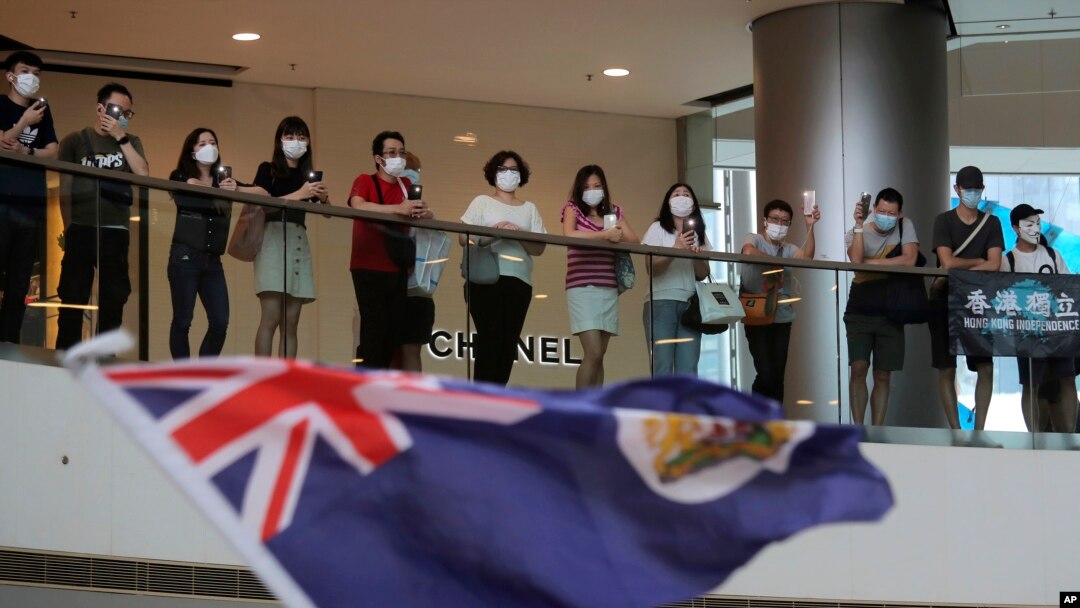For many Hong Kongers, the Chinese parliament’s approval of a plan to impose controversial national security laws on the bustling Asian financial hub this week was a moment of hard decisions.
Fearing that a sweeping erosion of the city’s rule of law, rights and freedoms will soon start affecting their lives, many people quickly sold shares, converted savings into U.S. dollars, and seriously inquired into emigration. Hong Kong stocks fell for a third day on Friday, with the benchmark index tallying its fourth monthly loss this year.
China’s National People’s Congress passed the plan in a vote on Thursday - details of the legislation will be drafted and could be enacted within the next couple of months.
Legal experts and human rights groups are now concerned that China’s vaguely defined national security laws, used to suppress dissidents and government critics in mainland China, will be applied to the semi-autonomous city.
They say the move has essentially sounded the death knell for the “one country, two systems” policy which has enabled Hong Kong to maintain the rule of law and basic civil liberties established during its years as a British territory -- core values that have underpinned its success as an international business hub.

Protesters hold a British National (Overseas) passport and Hong Kong colonial flag in a shopping mall during a protest against China's national security legislation for the city, in Hong Kong, Friday, May 29, 2020.
After anti-government protests roiled the semi-autonomous city for nearly a year, China has now bypassed Hong Kong’s legislature to impose national security laws on the city to prevent and punish “acts and activities” that threaten national security, including secession, subversion and terrorism. Beijing said it was necessary to plug the national security “loophole,” which includes “foreign interference” blamed for stirring unrest in Hong Kong.
The legislation, which would also allow Chinese national security organs to set up agencies in Hong Kong, has been widely criticized around the world, with the U.S. indicating that the city may lose its special trading privileges and be treated like China on trade and other financial matters.
Legal experts say the rule of law will be the hardest hit in Hong Kong as it is unclear to what extent China’s existing national security laws, expanded since 2015 and having all-encompassing definitions, will be applied to Hong Kong.
After the handover of sovereignty by the British in 1997, Hong Kong has maintained its own legal system, with the city’s own legislature enacting its own laws in the common law tradition. The laws have been enforced by the city’s law enforcement agencies and administered by local courts.
But this will soon change when China’s national security laws can be directly applied to Hong Kong through an annex of the city’s mini-constitution, the Basic Law. China’s judiciary is under the leadership of the Communist Party and President Xi Jinping has vowed not to go down the path of Western constitutionalism, separation of powers and judicial independence.
Chinese President Xi Jinping reaches to vote on a piece of national security legislation concerning Hong Kong during the closing session of China's National People's Congress (NPC) in Beijing, Thursday, May 28, 2020.
“The central government is now making law for Hong Kong,” said Johannes Chan, professor of law at the University of Hong Kong. “The [new] laws may be enforced by a national security organization which we have no ideas about its powers, and it is unclear if our courts have jurisdiction over the national security law.”
The draft law proposes to ban “acts and activities” endangering national security and Chan said this would make participating or being present at a protest potentially a breach of the law.
Michael Davis, former law professor at the University of Hong Kong and a Global Fellow at the Woodrow Wilson International Center, said public security is “where Beijing's rule is at its most repressive” and believes that the application of Chinese national laws to Hong Kong means “the freedom that Hong Kong has known will now be under grave stress.” He questioned whether Hong Kong’s courts would be allowed to exercise their constitutional judicial review power to safeguard human rights.
SEE ALSO: China Threatens US Counter Measures if Punished for Hong Kong LawNicholas Bequelin, East Asia director of Amnesty International, said the concept of national security in China is “totally incompatible with the rule of law” because national security in China is “both a legal and a political instrument.”
“Not a single person in Hong Kong would be safe if Beijing was to apply its own concepts of national security to the territory,” he said. Even if the authorities temporarily tolerate some protests or a free press, these would not be protected under the law, he said.
“Over time, the application of these principles would be indistinguishable from mainland China - that is, on-going, systematic, often arbitrary politically-motivated repression,” he said.
The Hong Kong government has already taken steps in recent weeks to prohibit rallies and protests, such as an annual march to mourn the victims of the 1989 Tiananmen Square crackdown, mostly citing the risk of COVID-19 infection. The government has also ordered public broadcaster RTHK to overhaul its management and editorial system after authorities censured various programs for “biased” political positions.
Eric Cheung, principal lecturer of law at the University of Hong Kong said what is yet unknown is whether China’s national security laws can override local laws. For example, it is unclear whether Chinese laws’ definition on the limitations of protests and assemblies would apply to Hong Kong. It is also unclear whether cases involving national security charges would be explicitly handled by Hong Kong’s courts.
In China, vaguely defined political crimes are often used to suppress and punish dissent and perceived threats in the eyes of the government. National security charges have been used widely to detain, harass, arbitrarily arrest, prosecute or sentence journalists, lawyers, activists and internet users who had criticized the government.
Davis said the proposal poses “a grave risk to free expression in Hong Kong” and the challenge for free speech arises out of uncertainty and the chilling effect such uncertain boundaries cause.
SEE ALSO: Hong Kong Rattles US Investors“As a journalist, do you need to be cautious about what you say or write regarding public protests or public issues at the risk of being targeted by such investigations? What exactly will these security officials do to stop such behavior or speech? And how will they punish it?” said Davis.
Sophie Richardson, China director at the Human Rights Watch said the Chinese government’s own “overbroad and arbitrarily-deployed” national security laws already violate numerous international human rights obligations. She said the imposition of national security legislation in Hong Kong, where the International Covenant on Civil and Political Rights now fully applies, renders the city “more like China and farther away from the promised respect for autonomy and civil liberties.”


